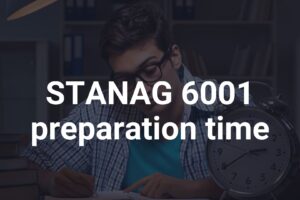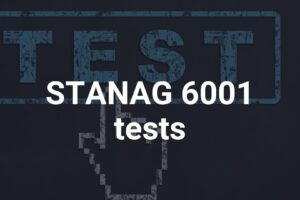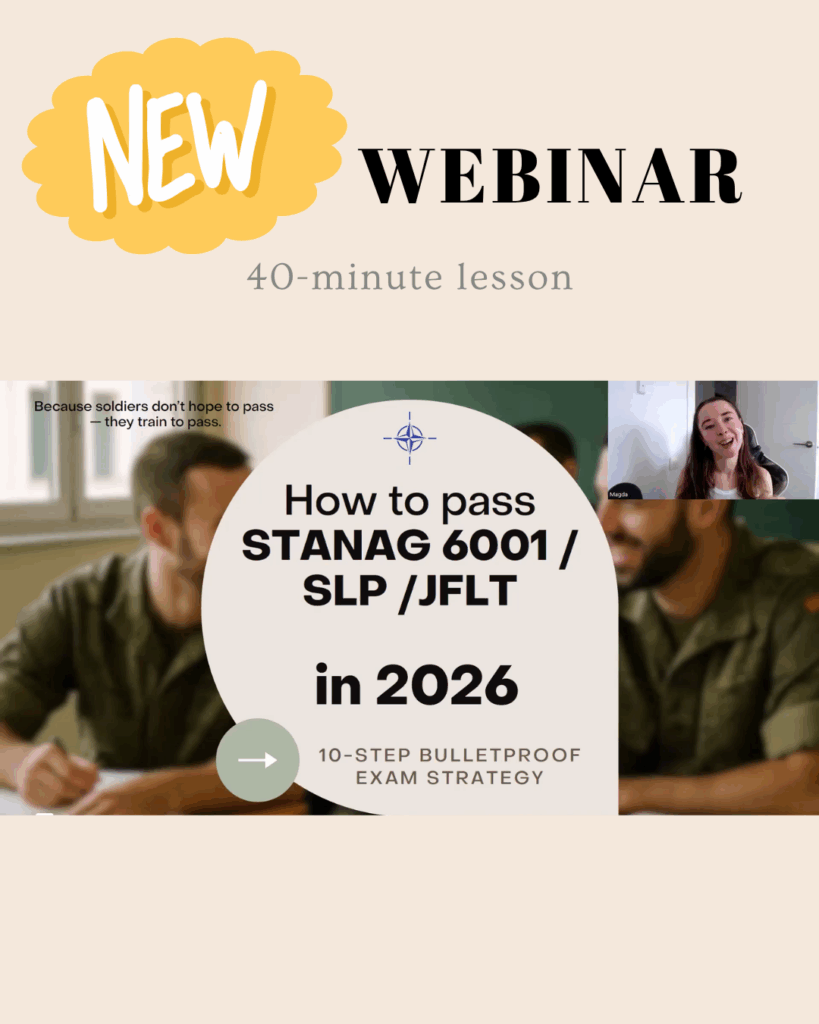
Stanag 6001 (SLP 3333) Level 3 Exam in Spain
After having discussed the SLP 2 exam in Spain, it’s time for LEVEL 3, so-called ‘the professional level’!
Every year there are more and more soldiers requesting this exam level, which suggests that the English level in the Spanish army is on the rise! That’s great news.
In the last few years, there has been a strong emphasis on language training in the Military Academies and cadets are expected to graduate with a good command of English, which will prepare them to handle situations in the international work environment.
I am sometimes asked whether there is a big difference in the language competence between the SLP level 2 and 3. There is a HUGE one.
That’s because Level 2 requires LOTS (Lower-Order Thinking Skills), such as describing and remembering, whereas at Level 3, students have their HOTS tested (Higher-Order Thinking Skills), such as speculating, hypothesizing, making predictions, justifying, assessing or evaluating to name a few.
Let’s break it down to specific skills.
SLP 3333 WRITING
Students are expected to be able to write a wide range of writing types, but the ones that tend to appear most often on the exam are articles, essays and reports. However, they need to be prepared to write the writing forms requested at level 2 as well, especially because the first part of the task refers to the LEVEL 2 language functions (usually descriptions or narrations). 1/3 of the main body should address the Level 2 task and the other 2/3 the Level 3 task. Examinees are expected to use abstract language in their writing. It’s their language that is assessed, not their knowledge; however, the topics that they may come across often require knowledge in a particular area (e.g. educational issues in the examinee’s country).
If you are currently preparing for the SLP exam and need some guidance on your writing, you may consider purchasing my Writing Feedback pack, which contains writing corrections, 1:1 session with me, model writings and extra materials.
SLP 3333 SPEAKING
The initial part of the speaking exam is BORE, a 3-4-minute presentation, where the candidates introduce themselves and talk about their past – starting from where they grew up, when they joined the army, a short career narration including the highlights, missions and the last promotion, as well as current duties and responsibilities. It is also advisable to add a personal element – hobbies and interests, but it should be something specific and possibly intriguing and encouraging to ask questions. Even though this part of the exam is not assessed – it will give the examiners a general idea of the examinee’s level and what they are capable of in terms of the language use and the candidate will warm up and have a chance to get familiar with the examiners’ accents. The examiners will also come up with the questions to ask in the next part of the exam – based on the information given by the candidate.
In the main part of the exam, which takes 10-15 minutes, the examinees are given different types of tasks – some of them are going to be Level 2 tasks (narrations, descriptions or instructions) , others – Level 3 tasks (requiring the use of abstract language – comparisons, assessment, speculations, predictions, etc.)
The final part is a wrap-up leading towards the end of the speaking exam. It might be a simple question about the weekend plans or plans for the future – just to end it politely and on nice terms.
SLP 3333 READING
The reading part at the Level 3 is very similar to the one at Level 2 in terms of the structure (30-35 short texts); however, the level of difficulty is significantly higher. Do not underestimate the reading part as a lot of students tend to do. It might be trickier than you expect so read a lot of academic texts, news and articles in advance.
SLP 3333 LISTENING
The listening part consists of 30-35 short listening tasks – they may come in different formats, but in the last few years, a dominant one has been interviews and news pieces. Make sure you get familiar with these types of listening – the interviews might be particularly challenging as the speakers will use so-called ‘more relaxed’ language – which means a lot of connected speech. Expose yourself to a wide variety of accents – do not stick to one only as on the exam you’ll hear a mix of a few.
If you want to practice your listening skills, I encourage you to check the Audiolibrary Section where you will find a collection of podcasts related to the military topics.
I keep my fingers crossed for all of you taking the SLP exam!




